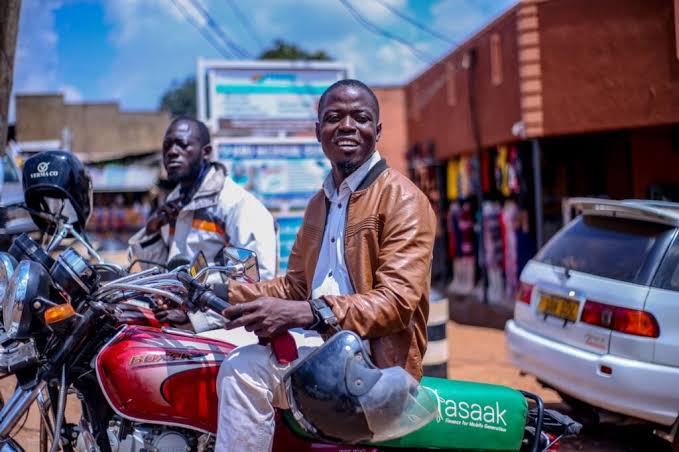Tech
Asaak acquires FlexClub to expand global footprint. 1 other story and a trivia

This line-up of stories will help you discover the latest happenings around the tech world, today
1. Asaak acquires FlexClub to expand global footprint
Ugandan fintech firm, Asaak, has completed the acquisition of FlexClub Mexico, expanding its operations to Latin America.
Although the financial details of the transaction remain undisclosed, the acquisition will see the startup make entry into the Latin American market.
This strategic acquisition comes as a testament to Asaak’s commitment to providing innovative financial solutions for mobility workers globally.
Tinashe Ruzane, CEO and co-founder of FlexClub, expressed enthusiasm about the collaboration with Asaak and their shared vision for Latin America.
He emphasized that FlexClub’s decision to exit the Mexican market is driven by the need for focused attention within a challenging economic environment.
Asaak’s acquisition of FlexClub Mexico is poised to revolutionize mobility financing, bridging crucial gaps in the financial landscape and providing affordable credit solutions for Latin American workers.
Kaivan Khalid Sattar, CEO and founder of Asaak, emphasized the company’s dedication to reimagining financial inclusion in the mobility financing sector. He sees this acquisition as an opportunity to bring African innovation to Latin America and create meaningful financial solutions for mobility workers in emerging markets.
Founded in 2019, FlexClub connects customers seeking long-term car access with partners offering car subscriptions, operating in South Africa and Mexico, with partnerships, including Uber, facilitating car subscriptions for Uber drivers.
Tech Trivia: How many different digits are used by a hexadecimal numbering system?
A. 10
B. 12
C. 16
D. 24
Answer: see end of post
2. Cameroonian Startup, Koree, to expand across Africa
Cameroonian startup, Koree, a consumer app acting as a digital wallet for loyalty cards, is gearing up for expansion across Francophone Africa with the support of matching funding from Catalytic Africa.
Founded in September 2022, Koree enables consumers to digitally collect spare change from cash retail payment roundups and earn cashback from various stores and brands across multiple categories.
The startup recently received a EUR20,000 (US$22,000) investment from the Cameroon Angels Network (CAN), unlocking a 3X matching investment of EUR60,000 (US$66,000) from Catalytic Africa, an investment fund established by the African Business Angels Network (ABAN) and AfriLabs.
Koree addresses the issue of coin and low-value bill scarcity in French-speaking countries in Sub-Saharan Africa, which has hindered the velocity of retail transactions.
The startup’s product allows merchants to handle cash payments, which constitute 85% of offline merchant transactions in the region.
Currently serving 10,000 users and 40 store partners, Koree has processed over 30,000 transactions worth more than US$200,000 since its inception.
The startup has ambitious expansion plans, targeting markets in the Francophone Sub-Saharan Africa region, such as Ivory Coast, Senegal, and the Democratic Republic of the Congo (DRC).
This expansion is supported by CAN and Catalytic Africa, and Koree is actively raising a pre-seed round to facilitate its growth.
Koree’s innovative approach to solving a fundamental issue in retail transactions showcases the potential of fintech solutions to address specific challenges in emerging markets.
Trivia answer: Hexadecimal
Hexadecimal is a base-16 number system used to represent binary data. Unlike the base-10 (or decimal) system that uses 10 symbols to represent numbers, hexadecimal digits use 16 symbols — the numerals “0”-“9” to represent values 0-9, and the letters “A”-“F” to represent values 10-15.
In a base-10 system, you count in multiples of 10. After each group of 10, you increase the next-higher digit: for example, counting “8-9-10-11-12” increments the second digit (the tens column) from 0 to 1 and starts the first digit (the ones column) back at 0.
Join the conversation
Support Ripples Nigeria, hold up solutions journalism
Balanced, fearless journalism driven by data comes at huge financial costs.
As a media platform, we hold leadership accountable and will not trade the right to press freedom and free speech for a piece of cake.
If you like what we do, and are ready to uphold solutions journalism, kindly donate to the Ripples Nigeria cause.
Your support would help to ensure that citizens and institutions continue to have free access to credible and reliable information for societal development.












